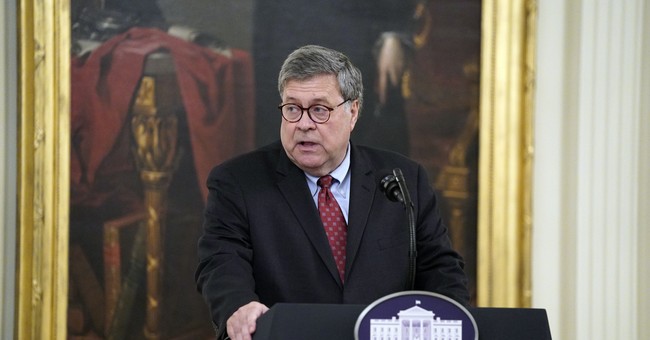
Among the numerous newsworthy comments made by Attorney General Barr during his Hillsdale College speech on Wednesday was a reference to the nonsensical idea that “career” prosecutors in the Department of Justice must be allowed to make decisions and take action without input of political appointees who occupy supervisory and policy positions in DOJ. On this subject AG Barr said the following:
…. [I]t has become fashionable to argue that prosecutorial decisions are legitimate only when they are made by the lowest-level line prosecutor handling any given case. Ironically, some of those same critics see no problem in campaigning for highly political, elected District Attorneys to remake state and local prosecutorial offices in their preferred progressive image, which often involves overriding the considered judgment of career prosecutors and police officers. But aside from hypocrisy, the notion that line prosecutors should make the final decisions within the Department of Justice is completely wrong and it is antithetical to the basic values underlying our system.
This is certainly a reference to the ridiculous criticism that he received from liberal legal pundits over the decision by Barr to dismiss the case against Gen. Michael Flynn based on a recommendation of United States Attorney Jeffrey Jensen, and the decision by Barr to direct the withdrawal of the original sentencing statement submitted by the trial team prosecutors in the case brought against Roger Stone, and to file a substitute statement that did not seek the same ridiculous sentence as had been requested by the trial team. Both “career” officials from the SCO who led those two prosecutions — Aaron Zelinsky and Brandon Van Grack — were woefully lacking in experience. The idea that the decision-making by each should be left without oversight is just ridiculous beyond words. The Stone prosecutors sought a sentence that was not at all supported by the four cases they cited as examples in their Sentencing Statement, and the Flynn case was dismissed based on findings of a US Attorney having to do with FBI (mis)conduct that raised policy implications separate and apart from the “merits” of the decision to bring the case by Van Grack and the SCO — the (mis)conduct predated the existence of the SCO and Van Grack’s assignment thereto.
AG Barr continued:
Line prosecutors, by contrast, are generally part of the permanent bureaucracy. They do not have the political legitimacy to be the public face of tough decisions and they lack the political buy-in necessary to publicly defend those decisions. Nor can the public and its representatives hold civil servants accountable in the same way as appointed officials. Indeed, the public’s only tool to hold the government accountable is an election — and the bureaucracy is neither elected nor easily replaced by those who are.
This is a crucial point that needs to be better understood by the public. The hiring process at DOJ — whether it is in the US Attorney’s Office, the Criminal Division, or the Civil Rights Division — is all in the hands of political appointees. In the past, Assistant United States Attorney positions were hired by each United States Attorney in a particular district. Vacancies were advertised by district and office, and applications were made for specific open positions. It was not like federal law enforcement agencies where you applied and were hired through a centralized process, assigned to some office, and moved to that location. If there was an AUSA position vacant in Dallas, then dozens — or hundreds — of people applied for that position. The US Attorney’s Office decided who to interview among the applicants, and ultimately who to hire. Other than a background check, there is no participation by Main Justice in the process.
During the first term of the Obama Administration, this process changed in a manner that led to it becoming highly politicized.
Participation or membership in liberal legal interest groups such as the ACLU became nearly a necessity to get past the application stage and secure an interview. The justification offered was the prominence of members of the “Federalist Society” – a legal advocacy organization that supports “originalist” and “conservative” legal doctrines — among the political appointees and judges nominated during the eight years of the Bush 43 Administration.
When I joined DOJ in 1992, I was a member of the Federalist Society, and during my 22 years with DOJ I could count in the fingers of both hand the number of other Federal Society Members I worked with who were line assistants. Most line assistants were generally “apolitical”. Everyone was political to a degree — to the extent they were registered with one party or another. But 99% of the work has no political implications. Within the office it was never “Bloods” and “Crips” when it came to conservatives and liberals. We all had the work in common, and we celebrated in each other’s successes because the efforts had no political overtones or goals.
But in 2009, a very different environment took over when Obama appointed US Attorneys took office.
I had 15 years experience. I had more trial experience than just about anyone else among the AUSAs in the office. It took about 10 months for the new US Attorney to be confirmed, and that person was a career AUSA in the office who was a friend. I didn’t expect any hostility to come my way, and there never was any “overt” hostility. But within 6 months I was reassigned from “Organized Crime and White Collar” to “General Crimes”. Over time, I saw more and more cases assigned to me in the category of “Felon in Possession of a Firearm” and “User in Possession of a Firearm” and similar such cases. I had held on to a couple of significant “organized crime” cases because it would have been disruptive to reassign them to someone else. But the new cases coming my way were less than enthralling.
When I was assigned an investigation into whether an individual had violated an obscure wildlife sanctuary statute by removing some skeletal remains for a personal collection, I knew my time was short. I spoke with someone in a position to know whom I trusted, and the word I was given was to not expect anything to change. There was a desire to create open positions for new hires in an office where turnover was not substantial, and I was among the names at the top of the list based on the rationale that I would have no problem earning a living outside DOJ. I hung on for a while, but eventually I simply disliked what I was doing enough to not want to work there any longer.
Three of us resigned over a period of about 60 days. All three positions were filled with young attorneys with less than five years experience — and ALL transferred to the US Attorney’s Office from a litigating section in DOJ Criminal Division. What became obvious was that Main Justice had been turned into a “central” hiring hub, and the new hires were then “slotted” for transfers to US Attorneys Offices where they wanted to go, and pressure was then brought on those offices to create open positions.
After I departed, and watched as other colleagues left over the following 18 months, the same pattern followed — the new hires came mostly from Main Justice and Capitol Hill, and all had liberal backgrounds. This was not a big office. It was common knowledge who left, and who the replacements were. Before Trump’s victory in 2016, at least 3/4 of the AUSAs had come into the office during his two terms. Everyone with my experience or greater had been made to depart or encouraged to retire.
Consider this article from 2011 by Hans A. von Spakovsky about the hiring in the Civil Rights Division following Obama’s Election. Of sixteen new hires whose applications were obtained through a FOIA request, every one had worked for or otherwise been affiliated with a liberal interest or civil rights group. This was the pool from which US Attorneys were being “encouraged” to hire when filling the vacancies they were creating in their offices by pushing out Bush Administration “holdovers” among the “career” folks like me. Hiring within DOJ meant no background checks, so there was no period in which the office was “short-handed.” The new hires were just transfers and could begin work right away. Relocation expenses were paid — not normally paid for new hires — because Main Justice wanted to create more vacancies at DOJ in order to bring in more recent law school graduates. As a result of this process, the “career” ranks of “line prosecutors” grew vastly more liberal during the second term of the Obama Administration. And that is the “bureacracy” in DOJ that Donald Trump inherited.
These are the “career” “line prosecutors” that the left-wing is screeching over, and demanding that they be allowed to do their work without the influence of conservative Trump political appointees in DOJ or the US Attorneys Offices.
AG Barr was right to call “BS” on the subject, and to assert the authority of the political appointees in Justice to dictate how DOJ shall do its business.
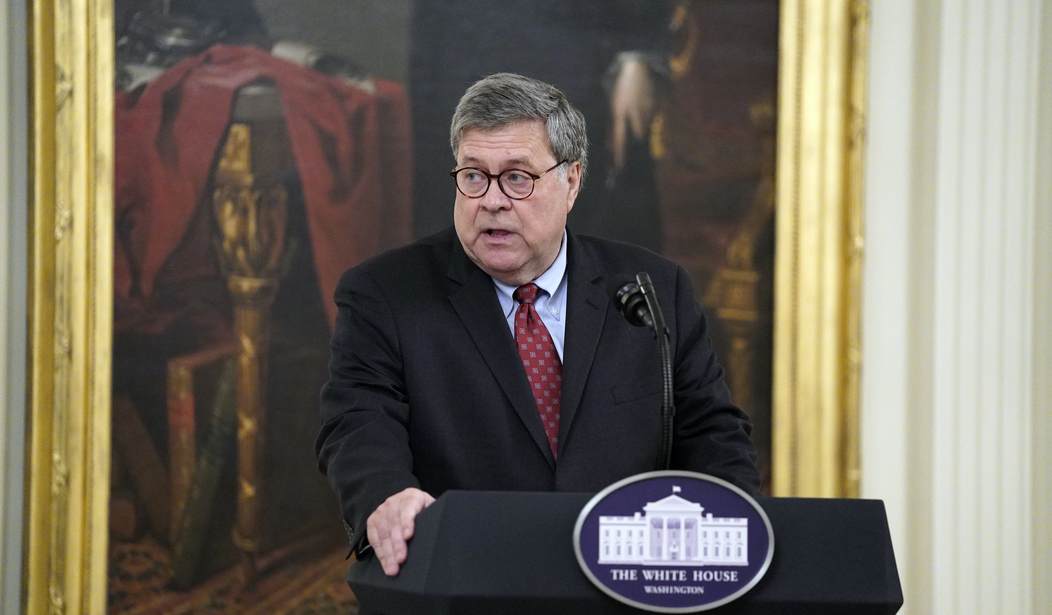



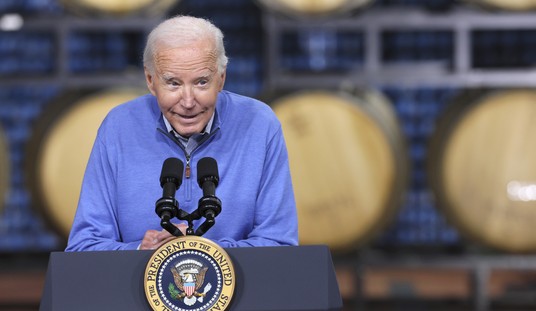

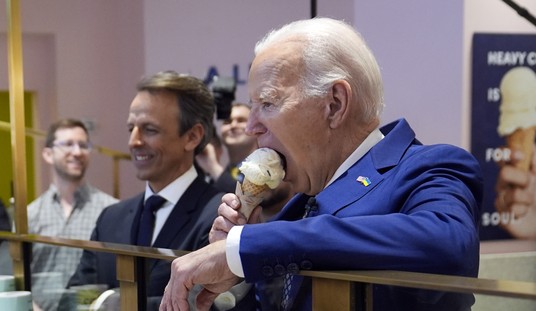


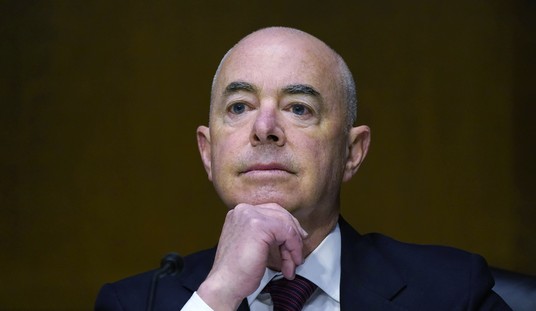
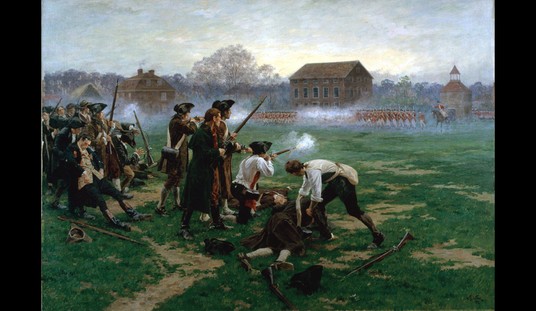

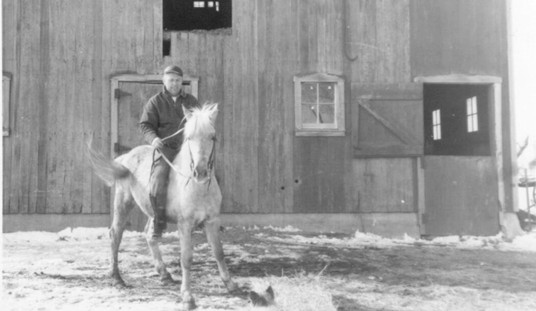
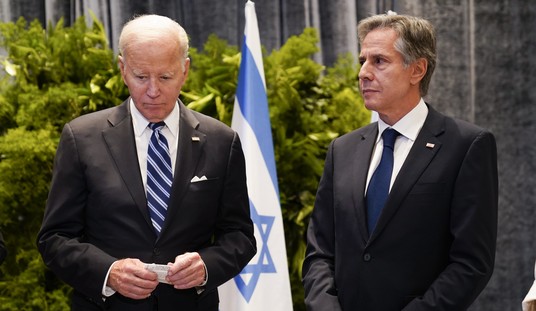
Join the conversation as a VIP Member